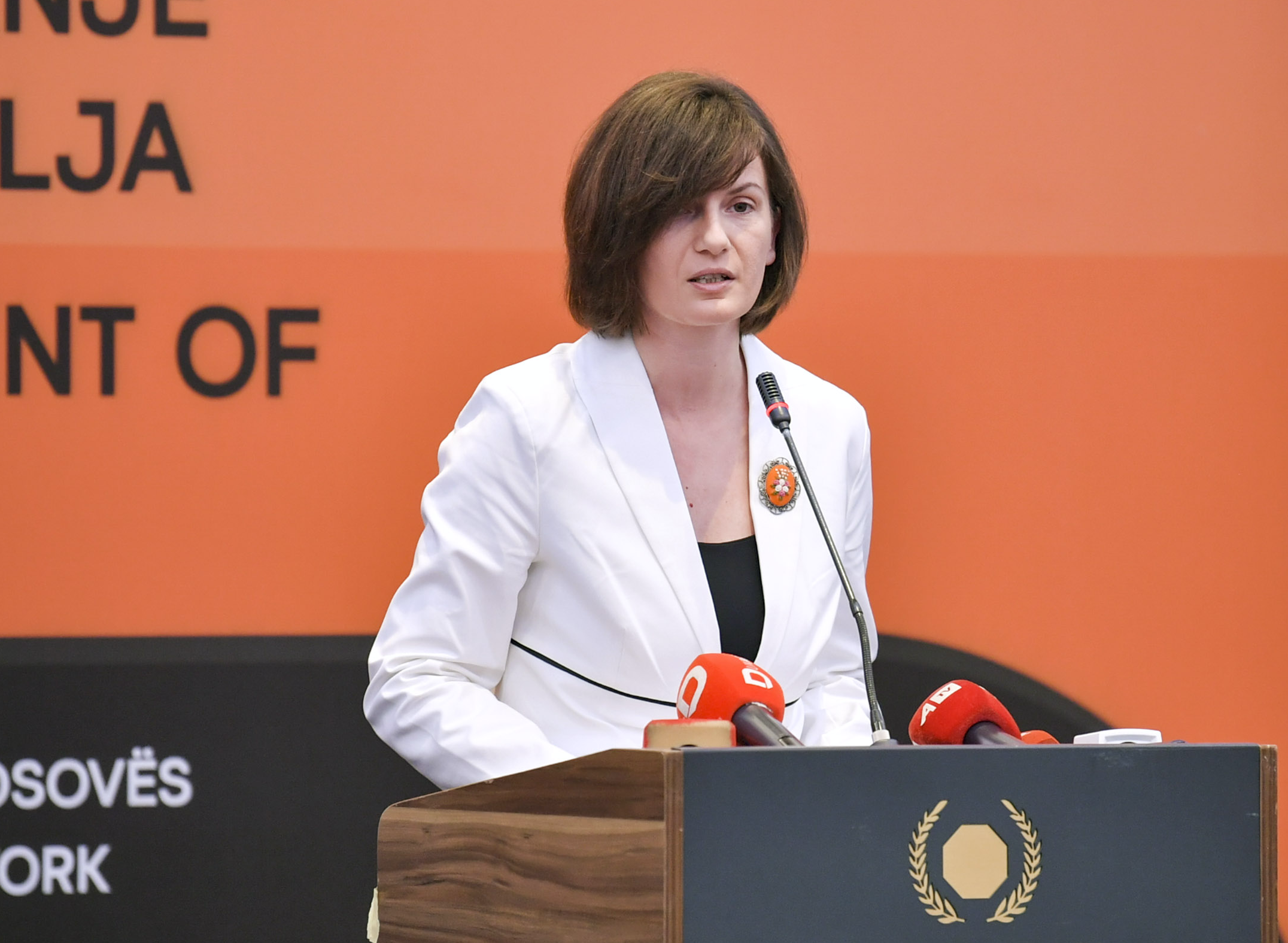Interview: “Social norms are the hardest to change when it comes to sexual violence”
Date:

Ms. Bergita Curri is a forensic medicine specialist at the Kosovo* Institute of Forensics and associate professor at the Prishtina University of Medicine. Previously, Ms. Curri worked as a Forensic Death Investigator and Medical Inspector at the Ministry of Health. In her professional experience, she has led and implemented a number of awareness raising projects, including the most recent “Speak up on time” campaign on the importance of preserving biological evidence in cases of sexual violence. In this interview, Ms. Bergita Curri speaks in detail about the new protocol for responding to sexual violence cases, launched in Kosovo in December 2022, as well as about additional measures needed to protect women and girls victims and prevent sexual violence.
Kosovo recently approved the State Protocol for Treatment of Sexual Violence cases. What changes does this protocol mean for women and girls?
The State Protocol for Treatment of Sexual Violence cases aims to improve the treatment, referral and follow-up care of victims. It is drafted in a way that identifies and tackles problems in this field, and so we expect to increase reporting rates and the number of perpetrators punished by enabling better case management. The Protocol assigns obligations to state institutions in terms of offering services regardless of who makes first contact with the victim. It also obliges Institutions to provide certain services even during national emergencies as well as expert psychological support to the professionals who deal with victims of sexual violence. Referral mechanisms are simplified, and responsibilities of different Institutions are clearly defined.
What did it take to develop the Protocol and get it approved?
The main steps involved identifying weaknesses in sexual violence case management, establishing a working group of professionals and getting funding for the drafting process. As soon as this was achieved, drafting the document went smoothly, and it was approved within the planned time frame.
What is expected to be the main benefit of having the Protocol, both for the Forensic institute and for its users?
At the moment, the conviction rate is very discouraging, so I believe that the main benefit would be punishing more perpetrators and achieving justice for victims. The implementation of the Protocol should improve the referral mechanisms, which are also lacking in our country, as well as lead to prevention activities by various institutions.
What are the challenges in multi-stakeholder cooperation – cooperation among government entities, civil society organizations and others – that need to be addressed to provide comprehensive protection to women and girl victims of sexual violence?
I believe the main challenge are social norms and what the officials believe in regard to sexual violence and sexual violence victims. Those norms and beliefs contribute to the official responding in an appropriate way or an inefficient or harmful one. Also, while low funding is always a problem, when you look into the details of a case, you often see that there have been many no-cost tasks left undone because someone may have thought the victim was not really a victim but more of a provoker. Since social norms like these are hardest to change, we emphasized continuous trainings and activities and the importance of awareness-raising in the State Protocol.
What are the remaining legislative and policy gaps in offering protection to women and girls victims of violence?
The remaining legislative gap identified by the working group was the inflexibility of medical professionals’ obligation to report violence. Our Criminal Code still doesn’t outline any mitigating circumstances in that regard, and that makes it harder for victims to reach out to medical services. In terms of policy gaps, the current distribution of budget and lack of prioritization of social and victim-advocacy services create problems in the treatment of sexual and other gender-based violence cases and therefore should be addressed as soon as possible.
_______________
* For the European Union, this designation is without prejudice to positions on status, and is in line with UNSCR 1244/1999 and the ICJ Opinion on the Kosovo declaration of independence. For UN Women, references to Kosovo shall be understood to be in the context of UN Security Council Resolution 1244 (1999).